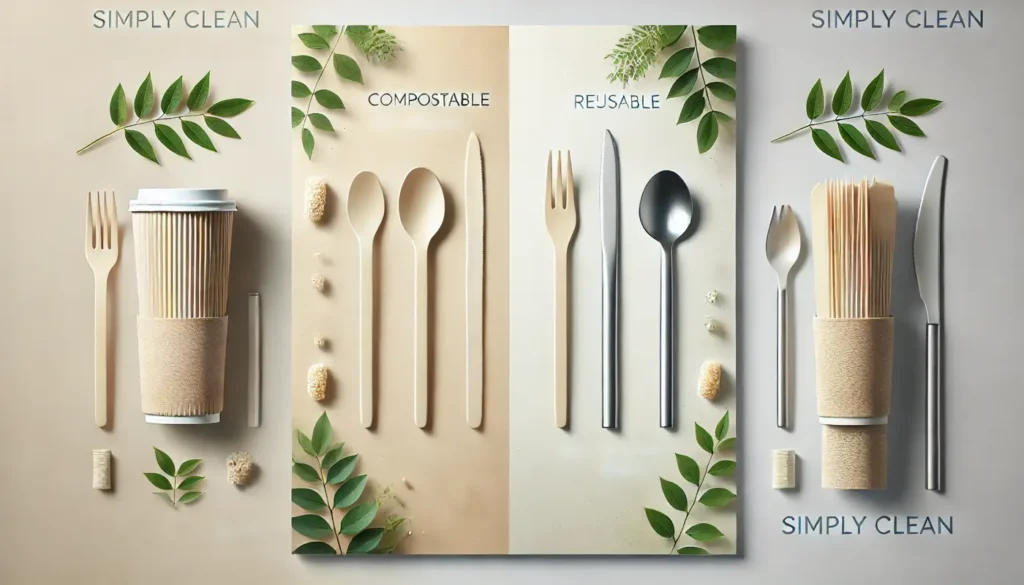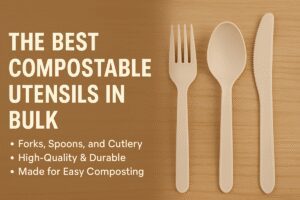
Sustainable dining solutions are essential for reducing our environmental footprint. Two popular options—compostable and reusable utensils—offer practical alternatives to single-use plastics. But which is more effective in promoting sustainability? Let’s explore their respective impacts.
Compostable Utensils: Designed for Convenience and Sustainability
Benefits of Compostable Utensils
- Biodegradability: Compostable utensils, like those offered by Simply Clean, are made from plant-based materials that break down in industrial composting facilities.
- Reduced Waste: Unlike plastics, compostable utensils don’t contribute to landfill accumulation or microplastic pollution.
- Renewable Resources: They are derived from sustainable materials like cornstarch or sugarcane fibers, helping to reduce reliance on non-renewable resources.
Environmental Considerations
- Production Impact: While compostable utensils have advantages over plastic, their production still requires energy and water.
- Composting Limitations: Not all regions have access to composting facilities, so some items may end up in landfills where decomposition takes significantly longer.
Reusable Utensils: The Long-Term Solution
Benefits of Reusable Utensils
- Durability: Made from materials like stainless steel or bamboo, reusable utensils can last for years.
- Minimal Waste: Reusables eliminate the need for disposable options, reducing overall waste generation.
- Energy Efficiency Over Time: Although their initial production has a higher environmental cost, repeated use offsets this over time.
Environmental Considerations
- Resource-Intensive Manufacturing: Reusable utensils require significant energy, raw materials, and water to produce.
- Washing Requirements: Regular cleaning consumes water and energy, which could offset some of their sustainability benefits if not managed efficiently.
Compostable vs. Reusable: A Comparison
Which Is Better for the Environment?
The choice depends on context:
- For Short-Term Use: Compostable utensils are ideal for events, catering, and takeout services, particularly in areas with access to composting infrastructure.
- For Long-Term Use: Reusable utensils are best for personal use, restaurants, or workplaces, offering more sustainable value over time.
Combining both options strategically can maximize positive outcomes. For example, businesses could use reusable utensils on-site and compostable options for takeout.
Final Thoughts
Both compostable and reusable utensils contribute to a more sustainable future. Compostable utensils, like those from Simply Clean, are a practical solution for single-use needs, while reusables provide long-term value and durability. Choose the option that best aligns with your lifestyle or business to make a meaningful impact.



